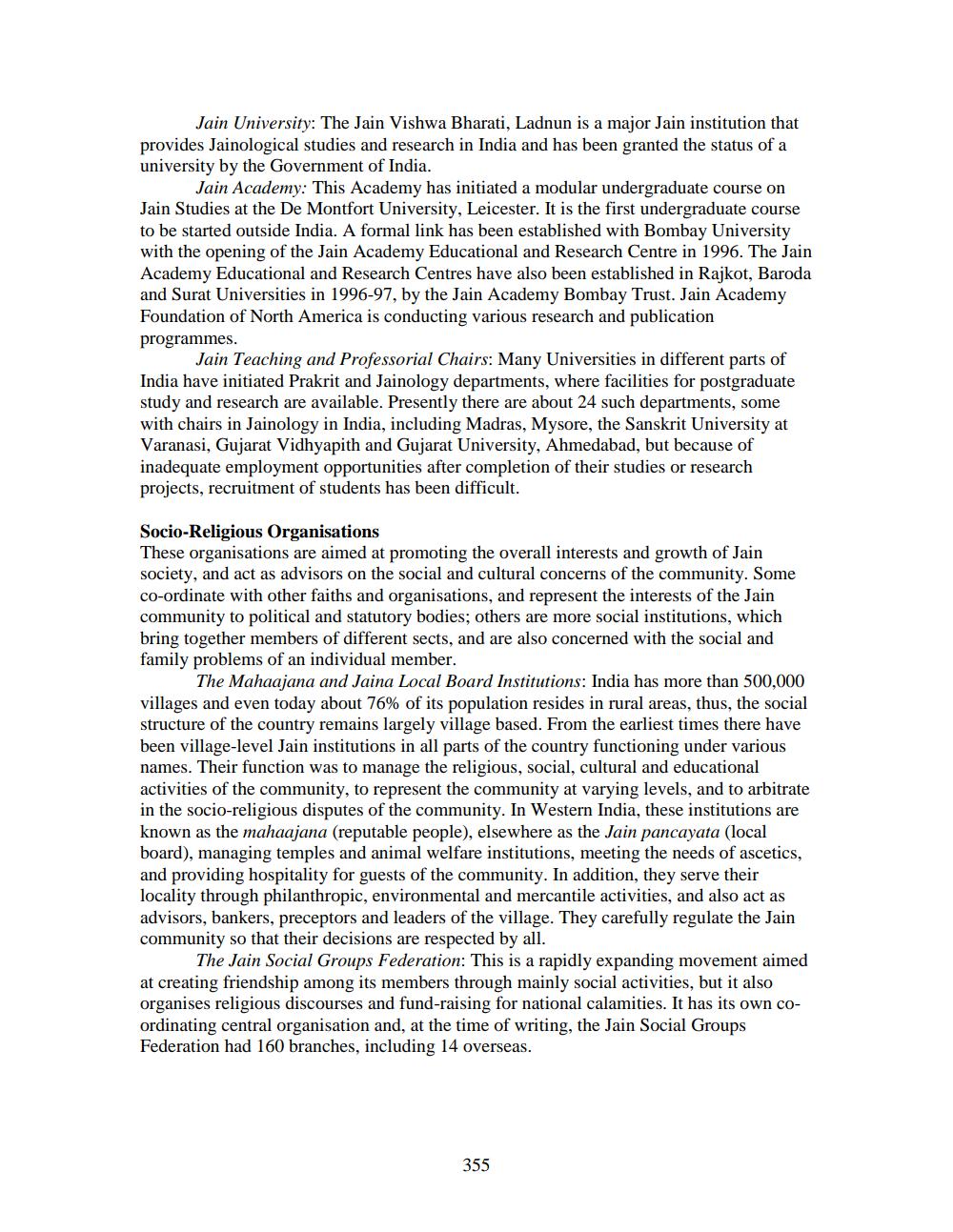________________
Jain University: The Jain Vishwa Bharati, Ladnun is a major Jain institution that provides Jainological studies and research in India and has been granted the status of a university by the Government of India.
Jain Academy: This Academy has initiated a modular undergraduate course on Jain Studies at the De Montfort University, Leicester. It is the first undergraduate course to be started outside India. A formal link has been established with Bombay University with the opening of the Jain Academy Educational and Research Centre in 1996. The Jain Academy Educational and Research Centres have also been established in Rajkot, Baroda and Surat Universities in 1996-97, by the Jain Academy Bombay Trust. Jain Academy Foundation of North America is conducting various research and publication programmes.
Jain Teaching and Professorial Chairs: Many Universities in different parts of India have initiated Prakrit and Jainology departments, where facilities for postgraduate study and research are available. Presently there are about 24 such departments, some with chairs in Jainology in India, including Madras, Mysore, the Sanskrit University at Varanasi, Gujarat Vidhyapith and Gujarat University, Ahmedabad, but because of inadequate employment opportunities after completion of their studies or research projects, recruitment of students has been difficult.
Socio-Religious Organisations These organisations are aimed at promoting the overall interests and growth of Jain society, and act as advisors on the social and cultural concerns of the community. Some co-ordinate with other faiths and organisations, and represent the interests of the Jain community to political and statutory bodies; others are more social institutions, which bring together members of different sects, and are also concerned with the social and family problems of an individual member.
The Mahaajana and Jaina Local Board Institutions: India has more than 500,000 villages and even today about 76% of its population resides in rural areas, thus, the social structure of the country remains largely village based. From the earliest times there have been village-level Jain institutions in all parts of the country functioning under various names. Their function was to manage the religious, social, cultural and educational activities of the community, to represent the community at varying levels, and to arbitrate in the socio-religious disputes of the community. In Western India, these institutions are known as the mahaajana (reputable people), elsewhere as the Jain pancayata (local board), managing temples and animal welfare institutions, meeting the needs of ascetics, and providing hospitality for guests of the community. In addition, they serve their locality through philanthropic, environmental and mercantile activities, and also act as advisors, bankers, preceptors and leaders of the village. They carefully regulate the Jain community so that their decisions are respected by all.
The Jain Social Groups Federation: This is a rapidly expanding movement aimed at creating friendship among its members through mainly social activities, but it also organises religious discourses and fund-raising for national calamities. It has its own coordinating central organisation and, at the time of writing, the Jain Social Groups Federation had 160 branches, including 14 overseas.
355




